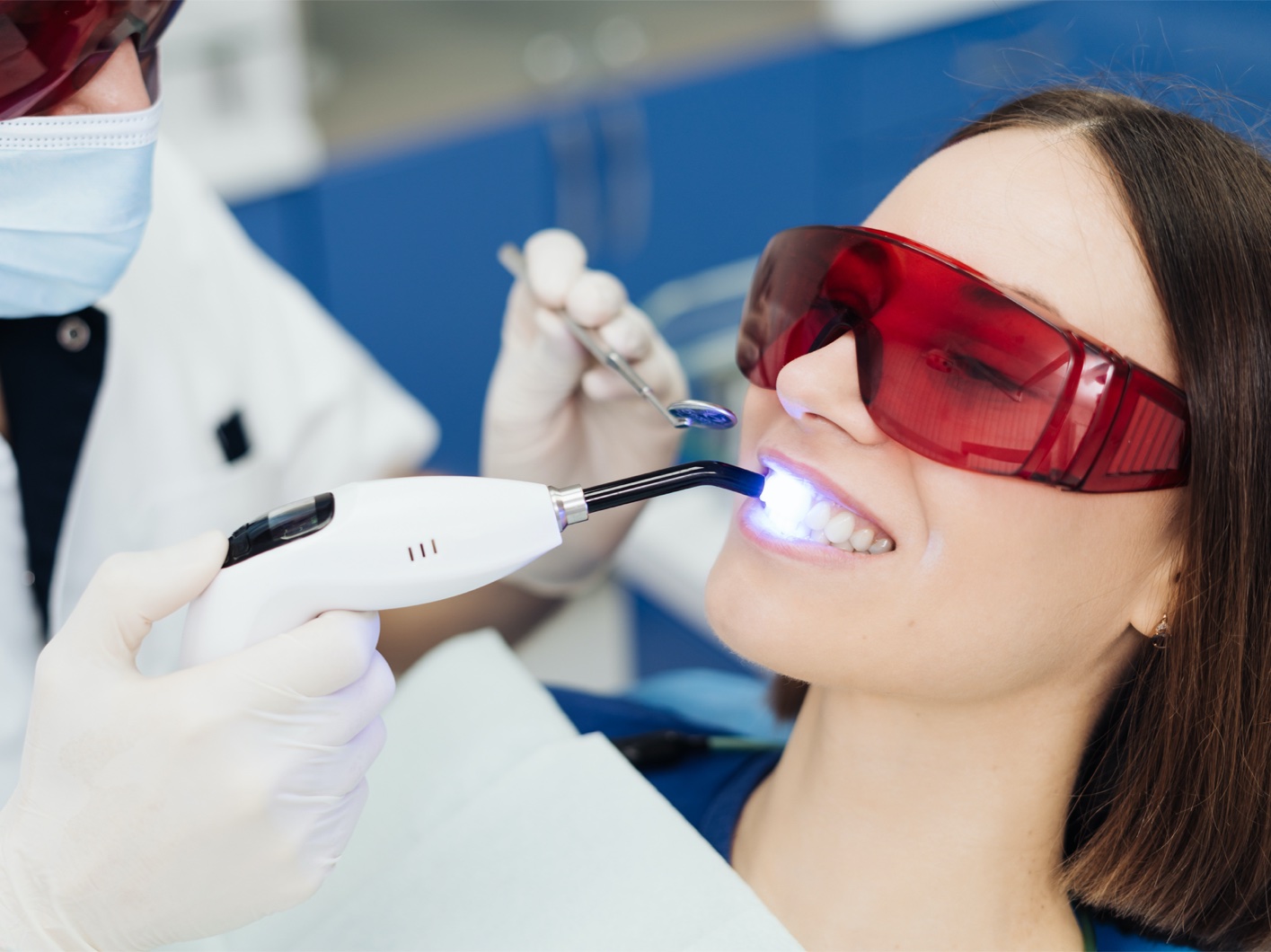
Laser Assisted Surgery
Laser-assisted surgery is a minimally invasive procedure that utilizes the power of lasers to treat various dental and medical conditions. In periodontics, laser-assisted surgery is used to treat a wide range of oral health issues, including gum disease, gum recession, and tooth decay.
What are the benefits of using laser-assisted surgery?
Laser assisted surgery is a modern, non-invasive, and relatively pain free tool used for a number of procedures. There are plenty of reasons to opt for this treatment:
Minimally Invasive: Laser-assisted surgery is non-invasive and does not require incisions, resulting in less discomfort and faster recovery times.
Reduced Bleeding: Laser energy seals the blood vessels during the procedure. This reduces bleeding and the need for sutures.
Reduced Risk of Infection: The laser energy sterilizes the treatment area, reducing the risk of infection.
Precise Treatment: The laser energy can be focused precisely on the treatment area, minimizing damage to surrounding tissues.
Shorter Procedure Times: Laser-assisted surgery typically requires less time than traditional surgical interventions allowing patients to be in and out of a procedure quickly.
Procedure for laser-assisted surgery
The procedure for laser-assisted surgery typically involves the following:
Evaluation: The dentist or periodontist will evaluate the patient’s oral health, which may include a review of the patient’s medical history, an examination of the teeth and gums, and diagnostic tests such as X-rays and periodontal probing.
Local Anesthesia: The periodontist will administer local anesthesia to numb the treatment area.
Treatment: The periodontist will use a specialized laser to perform the procedure. The laser can be focused precisely on the treatment area, allowing for precise treatment and minimal damage to surrounding tissues.
Aftercare: After the procedure, the patient will be given instructions on proper aftercare. This may include the use of pain medication, ice packs, and instructions on how to care for the treatment area.
Aftercare for laser-assisted surgery
Aftercare for laser-assisted surgery is important for ensuring a successful of the treatment. The patient should follow these simple guidelines:
Practice Good Oral Hygiene: Proper oral hygiene is essential to preventing a recurrence of the condition. The patient should brush twice daily, floss daily, and use interdental cleaners as recommended by a hygienist.
Attend Regular Check-Ups: Regular dental check-ups are essential to monitor the progress of the treatment and to detect any signs of recurrence early on.
Quit Smoking: Smoking is a significant risk factor for many oral health conditions. Patients who smoke should quit to improve their chances of success with laser-assisted surgery.
Maintain a Healthy Lifestyle: Eat a balanced diet and exercise regularly to help improve overall health and reduce the risk of developing oral health conditions.
Learn more about laser assisted treatment
If you think laser-assisted surgery sounds right for you, contact Gainesville Periodontics for a consultation. While lasers may not be the answer to every dental issue, it is an effective tool in leading a happy and healthy life with great teeth and gums.




